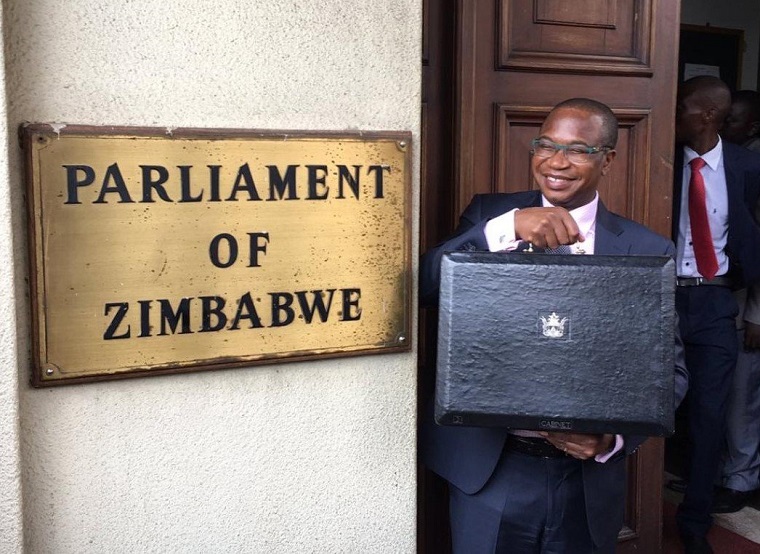HON. GONESE: On a point of order Mr. Speaker Sir.
THE HON. SPEAKER: I hope it is a real point of order.
HON. GONESE: Thank you Mr. Speaker. The Hon. Minister has not done justice to the second part of the question. The second part was what recourse does the client have when they have sought to withdraw their money and the bank has failed to do so.
THE HON. SPEAKER: Hon. Member, with all due respect, please, sit down. The Hon. Minister said, first recourse is the Reserve Bank. If you are not satisfied, approach him. It was very clear.
HON. T. MLISWA: Mr. Speaker Sir, I think what is important to understand is that the issue of banks and cash is true and my question to the Hon. Minister is simple. Now that there is no money in the banks in Zimbabwe, what are you doing about that?
THE HON. SPEAKER: Order, order. Please sit down. That is a new question my friend.
HON. T. MLISWA: I think the point here Mr. Speaker, we are trying to get to the ….
THE HON. SPEAKER: I thought it was a supplementary. You can ask that question later. Please sit down.
HON. T. MLISWA: Through you Mr. Speaker, I just want some clarity…
THE HON. SPEAKER: Please sit down. No, I cannot allow that. That is a different question. You can sit down and ask the question later.
HON. MARKHAM: Thank you Mr. Speaker Sir. I would like to know from the Minister on the nostro account if there are any new restrictions on how a person can spend his money.
HON. PROF. M. NCUBE: Mr. Speaker Sir, I thank the Hon. Member for that question. There is no restriction on how anyone spends their money. I thank you.
*HON. MATAMBANADZO: My question is directed to the Minister of Finance and Economic Development. What is Government policy regarding the issue of salaries – looking at both the public and private organisation workers because they are all under the rules and laws of the State? When are we going to get the adjustment of salaries, because at the moment the salaries are pegged on US$? In the past, it was US$250.00 for general workers. Administrators, artisans and all the skilled workers were pegged at US$500.00 per month. You will notice that at the moment these salaries have not changed. The reason why I am asking is that Government changed money from US$ bond to RTGs.
I am saying US$ bond because they were said to be equal. The US$ was equal to the US$ Bond. Therefore, my question is when this money migrated to the current system, we have noticed that there has been a rise of fuel prices. As of now, if you want to change your money in the banks, it is at a rate of 3.5% and that is if you want to move US$ from the bond. There has been an increase in the price of food and this was following the process which had been made of moving the money from bond to the US$ rates. What is Government policy regarding the adjustment of salaries so that they are in sync with the current situation?
THE HON. SPEAKER: I am sure the Minister understands the burning concept?
THE MINISTER OF FINANCE AND ECONOMIC DEVELOPMENT (HON. PROF. M. NCUBE): Mr. Speaker Sir, certainly I thank the Hon. Member for that question and for using rather colourful language in trying to put across his question. He has used language which is very colourful, usebenzise ilanguage ecolourful. So, I thank him for that question. The issue is like this. We have Government employees and private sector employees and that is largely the division of employees. What we have done as Government is basically to adjust the salaries of civil servants in response to changes in inflation. What we did in January to March – the first three months, we gave them a cushioning allowance to the value of $63 million.
We continued to negotiate with the employees’ through the normal structures and we have awarded a lump sum of $400 million RTGs dollars to see them from 1st April to the end of the year. In addition to that, we have also included non-monetary benefits which are still being fine tuned by the Public Service Commission, working with the Ministry of Public Service, Labour and Social Welfare. So these non-monetary benefits will be availed to the employees of Government in due course. That is what we have done in terms of cushioning the civil servants against rising inflation.
When it comes to the private sector employees, I am aware that companies are doing the same and they are making sure that they raise their salaries to cushion their employees against inflation. It is not that the employees are not pushing, they are pushing and the employers are responding through the normal bargaining process between employer and employee.
Naturally, I will be presenting a mid-term review of the budget and I am aware that there is pressure to also look into issues such as threshold for taxation. I have received so many requests looking into that issue. We are looking into that issue and were we to agree on what to do, it may also benefit the employees of both Government and the private sector.
On the issue of the comparison of salaries in US$ terms and then in RTGs$, we have made it clear that the accounting currency from the 20th February, 2019 is RTGs$. That is the accounting currency. So, I urge Members to use that as their accounting currency. Shall we go back to comparing our salaries to the pound that we used to use during UDI, shall we go back to comparing our salaries to other currencies that we have used in the past?
Let us move on and we have a currency right now and let us use that as our accounting currency in our arguments. It will help our arguments and negotiations if our employees are able to argue their case on the bases of the current currency arrangement and as well as the current levels of inflation. What we have noticed Mr. Speaker Sir is that prices are beginning to come down. – [HON. MEMBERS: Inaudible interjections.]- A few days ago, we learnt that companies such as Delta and others have begun to reduce the price of drinks.
This really demonstrates the fact that the austerity measures that we have put in place have managed to curtail demand and the price increases that we have seen so far are totally unjustifiable. They are not justifiable because we continue to have surpluses. So, we are not increasing the growth of money supply and in fact, in the last two months the growth of money supply has been negative. There is no justification whatsoever to increase prices further in line with the exchange rate as if one of the components of the basket of consumption is currency. It is not. People consume goods and they do not consume US$. We should desist from linking our salaries or anybody’s salaries to the US$ exchange rate. I thank you Mr. Speaker Sir.
Continued next page
(519 VIEWS)


